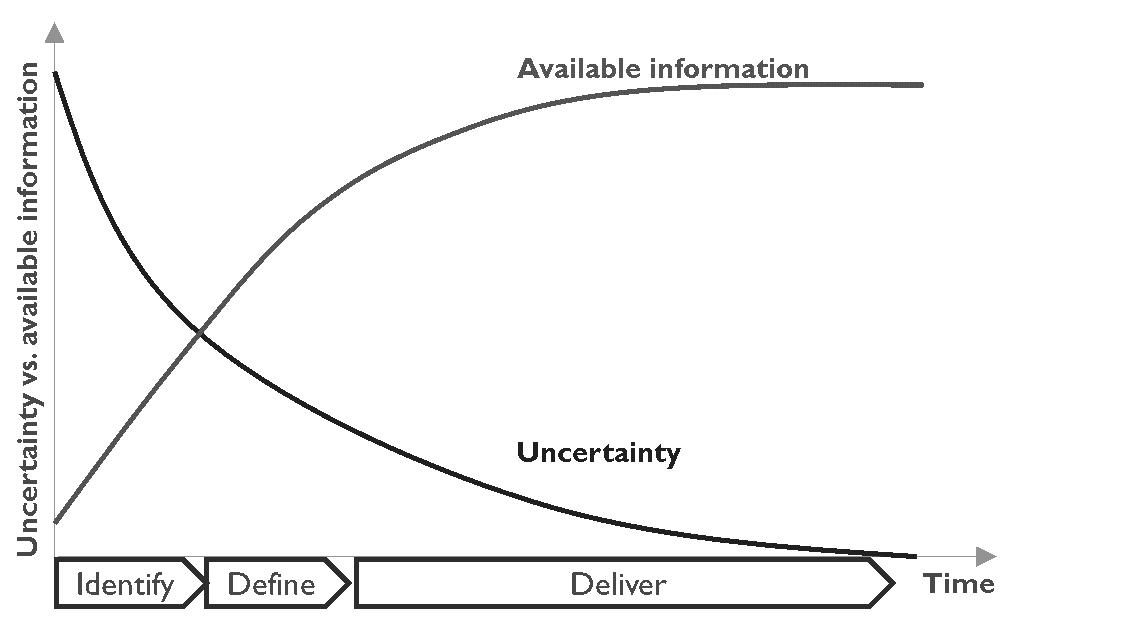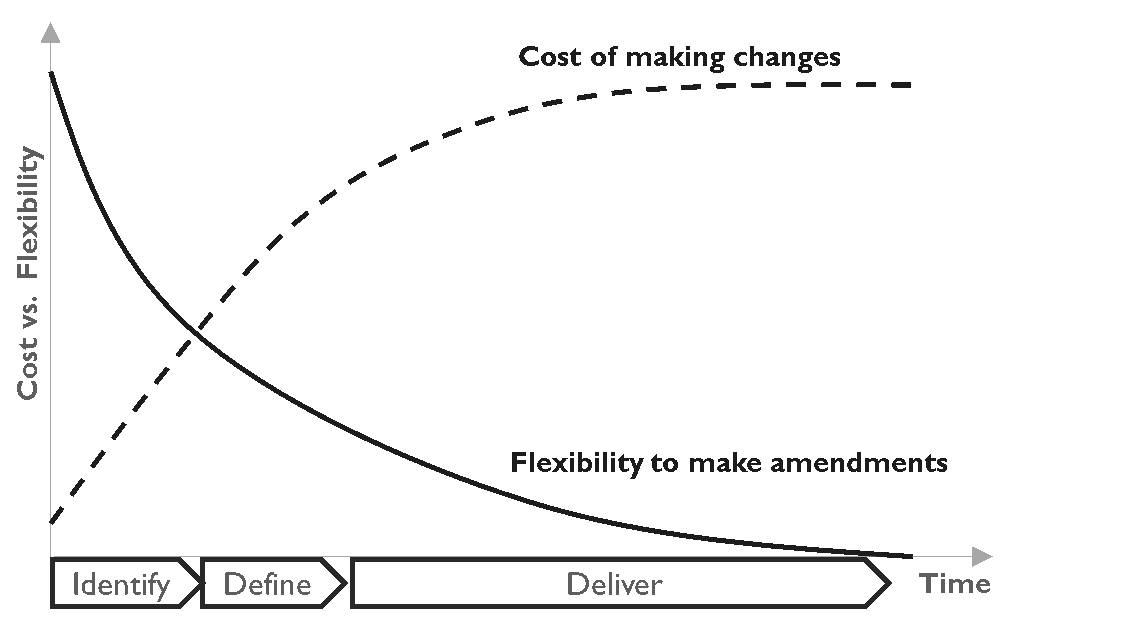Our website is not supported on this browser
The browser you are using (Internet Explorer) cannot display our content.
Please come back on a more recent browser to have the best experience possible

You’ve been given a mandate to start your project. Ready, steady, go! But wait! Do you have a team in place? Do you have a realistic delivery plan? Has your scope been locked down? Are your risks manageable? Are you aligned with other on-going projects? Do you have the correct governance in place? Is the proposed solution adequate?
TL;DR? Go to the 7 Steps.
Even organisations with a core competency in project management can struggle to address these questions. For example, those key project resources may already be dedicated elsewhere; a weak brief or less-than-robust “optioneering” process can lead to re-work; start-stop scenarios imposed by the sponsor can slow the advancement between project stages; poor communication between business functions can result in misalignment with projects that are already running.
So how can you begin a project effectively with so much uncertainty riding on it? Actually, you shouldn’t.
Uncertainty has been defined by the Association for Project Management Body of Knowledge as “A state of incomplete knowledge about a proposition. Usually associated with risk.” Project Management Institute’s PMBOK® defines uncertainty as “An uncertain event or condition that, if it occurs, has a positive or negative effect on a project objective.”

In its broadest sense, uncertainty can be defined as ambiguity or lack of clarity in a project. And that leads to increased risk and unforeseeable delivery outcomes. Yet the start of every project has ample uncertainty. This chart shows a simplistic representation of how you start a project with very little information and a great deal of uncertainty. As the project progresses, the level of understanding grows — thus decreasing the uncertainty.
Therefore, things are fluid at the start of a project, and you’re able to make changes to the scope, the design or the plan. As a project progresses through its various stages, the cost of making a change increases. Although not shown on the graph, the impact on the schedule also increases.

How can you increase certainty as close to the start of the project as possible to minimise the cost and impact of changes? MIGSO-PCUBED believes the answer can be found in a focus on early mobilisation.
Uncertainty early on has a tendency to drive a long period of definition, wasting time and introducing cost implications. Setting off on the right foot as early as possible in the project helps preserve schedules and budgets. As the chart below shows, mobilisation early in the project influences the overall outcome in a positive way.

We recommend making mobilisation a specific activity, to be handled by the person accountable for that project or programme. That individual would assign a core team for providing energy, leadership and instant capability commensurate with the challenges of the project. The team’s major focus: to ensure the project gets off on the right foot at those crucial front-end stages.
More on the same subject
Put a mobilisation delivery team in place. Appoint a core group that will provide leadership and the right capability from Day 1.
Quickly establish pragmatic best-practice governance and controls. Agree to core operating policies, governance, planning and reporting, change control and RAID (Risk, Assumptions, Issues and Dependencies) from the outset of the project.
Read our case study on how we use governance and control to develop cross program dashboards.
Establish scope stability early and promote a realistic delivery plan. Validate and challenge deliverability and schedule assumptions by undertaking impartial reviews, particularly where there are system integration requirements across multiple disciplines. For example, RAID logs can be used to capture and manage the “landscape” of assumptions.
Keep momentum going and stay on top of critical activities. It’s important to keep up pace when closing out a previous project stage in parallel to commencing the next one. You don’t want to lose buy-in from those key stakeholders or fall afoul of lots of minor slippages across activities early on (which will result in major delays later down the line).
Set a robust baseline on which to allow for future changes. Prior to starting a new project stage of “full flow” detailed design or delivery, undertake verification of the current requirements baseline. Any gaps in requirements should be identified and prioritised in order to “de-risk” potential changes down the line. Apply a robust change control procedure from the outset to track variance requests and understand the level of impact from changes on cost and time.
Gain early visibility and control of risks. Construct a risk escalation and resolution procedure to provide maximum visibility and earlier issue resolution.
Help foster an integrated project team — or “one team”. Mixed project teams are commonplace, whether it is collaboration through an alliance or joint venture, among suppliers, or where representatives are present in the team from another department or organisation. It’s crucial to maintain objectivity and not be tainted by conflicts of interest.
A seamless transition from early mobilisation into your delivery stage will give you the momentum and grounding you need to help ensure project success.
This article was written by Osian Evans
Loved what you just read?
Let's stay in touch.
No spam, only great things to read in our newsletter.
We combine our expertise with a fine knowledge of the industry to deliver high-value project management services.
MIGSO-PCUBED is part of the ALTEN group.
Find us around the world
Australia – Canada – France – Germany – Italy – Mexico – The Netherlands – Portugal – Romania – South East Asia – Spain – Switzerland – United Kingdom – United States
© 2024 MIGSO-PCUBED. All rights reserved | Legal information | Privacy Policy | Cookie Settings | Intranet
Perfect jobs also result from great environments : the team, its culture and energy.
So tell us more about you : who you are, your project, your ambitions,
and let’s find your next step together.
Dear candidates, please note that you will only be contacted via email from the following domain: migso-pcubed.com. Please remain vigilant and ensure that you interact exclusively with our official websites. The MIGSO-PCUBED Team
Choose your language
Our website is not supported on this browser
The browser you are using (Internet Explorer) cannot display our content.
Please come back on a more recent browser to have the best experience possible
